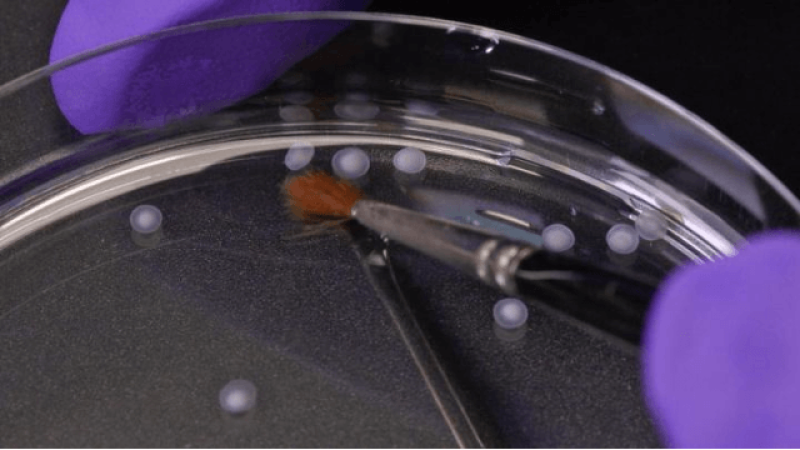Rusty Gage and colleagues at the Salk Institute [recently] announced that they had successfully transplanted lab-grown blobs of human brain tissue into mice. Gage’s team grew the blobs, known as brain organoids, from human stem cells. Once surgically implanted into rodent brains, the organoids continued growing, and their neurons formed connections with those of the surrounding brains. It was the first time such transplants had worked: Until now, organoids had only ever been grown in dishes. To be clear, Gage’s mice weren’t running around with human brains.
…
They do, however, capture some of the architectural features of parts of a brain, which is why they’re useful. Scientists can use them to understand how brains develop, and how they differ in disorders.
…
[T]he ethical discussion around organoids has yet to catch up with the fast-moving technology for creating them. They are getting bigger and more complex.…
At what point would an organoid be worthy of moral status? Of respect? “At what point is it reasonable to at least discuss the question of sentience? Or conscious experience? Pain? Pleasure?” asks Christof Koch from the Allen Institute.
…
“[S]cience is advancing rapidly. As it becomes more powerful and mature, with untold promise for therapies, one has to approach these issues in a thoughtful way, and get in front of them.” [says Koch].
Read full, original post: What’s Wrong With Growing Blobs of Brain Tissue?































